Kalmar, Grant Park forces deliver rich advocacy for a neglected Dvořák masterwork
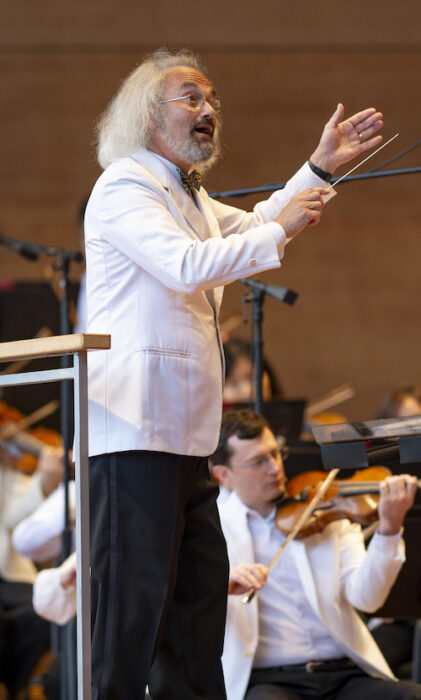
In addition to being one of the world’s greatest composers, Antonin Dvořák was also a man of deep religious belief. His Roman Catholic faith was sorely tested in September of 1875 with the death of his infant daughter Josefa.
Dvořák had barely recovered from that sudden tragedy when two more successive blows struck him and his wife Anna. Within a year their other daughter Ruzena died, followed by their only surviving child, a son Otakar.
That devastating period formed the backdrop for Dvořák’s writing his Stabat Mater, which was performed at the Grant Park Music Festival Friday night, led by Carlos Kalmar.
The work takes its text from the 13th-century Christian hymn to Mary, which portrays her pain and suffering during Jesus’s crucifixion. The Stabat Mater—literally, “sorrowful mother”—expands from empathy for the suffering of Mary and Jesus to an expansive meditation of overcoming loss, culminating in spiritual rebirth after death. The final stanza states “When my body dies, make that my soul is given the glory of paradise.”
The Czech composer’s setting of the Stabat Mater is epic, spanning 83 minutes and scored for four soloists, large chorus and orchestra. The work is cast in ten slow movements, which—while varied in tempo, scoring and expression—call for a firm yet flexible hand to keep the music on track and guide the proceedings.
And on a chilly evening on Chicago’s lakefront, Kalmar provided just that, surmounting a myriad of al fresco distractions to lead a performance of spiritual intensity blended with expressive warmth and, ultimately, glowing benediction.
Nearly an hour and a half of slow music is not what one thinks of in terms of populist summer concert fare. But this is precisely the kind of audacious counter-programming that has been characteristic of the Grant Park Music Festival under the stellar leadership of artistic director and principal conductor Kalmar and chorus director Christopher Bell. (The team also brought Dvořák’s Requiem, to Chicago audiences in 2010 as well as the cantata, The Spectre’s Bride in 2012).
Kalmar set the tone Friday night with the vast opening section, “Stabat mater dolorosa,” which accounts for nearly a quarter of the work’s duration. The orchestral introduction unfolded with focused concentration and a sense of slow-moving yet inexorable momentum. The entry of the chorus in the rising main theme gave voice to one of Dvořák’s most indelible melodies. Despite a screaming siren blast just before the chorus’s first entrance, the singers managed to come in together and on cue.
That was just one of numerous distractions on the lakefront, from racing car engines and police and ambulance sirens to helicopter noise and rude, cluelessly conversating patrons—all impeccably timed to disrupt the performance at its most quiet and interior moments.
Yet Kalmar and company kept focus and provided deeply affecting advocacy, rising to the somber majesty of the big choral moments while also bringing out the vulnerability and melancholy of much of the music.
This may be the opening weekend of the lakefront festival but Kalmar’s direction of this epic score was masterful, and among his finest achievements over the past 23 seasons. Pacing and varying ten slow movements while keeping keen dramatic grip is no easy task. Yet Kalmar always made the subtle tempo shifts register (Andante con moto to Andante sostenuto to Largo to Larghetto, etc.) and reflect the varied aspects of the devotional text through the soloists, chorus and orchestra. The long journey had a genuine sense of release with the sunburst of choral brilliance on “paradisi gloria” (“The glory of paradise”) in the closing section, leading to the final quiet cadence.
The four soloists proved well-equipped to handle their assignments, as a team, with the chorus and individually.
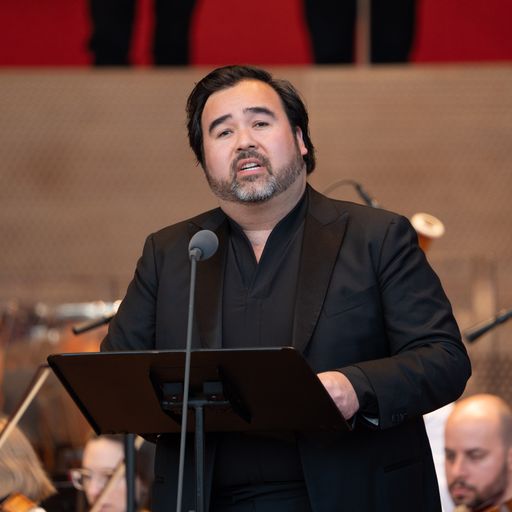
First among equals was John Matthew Myers, whose vibrant tenor has a febrile, aptly Slavic quality. In addition to his pleasing timbre, the singer consistently illuminated the text. In “Fac me vere tecum fiere” (Make me truly weep with you), Myers sensitively rendered the pleading expression of the text as surely as the spiritual confidence of the second section. He also blended gratefully with fellow soloist Olivia Boen in the duet, “Fac, ut portem Christi mortem” (Grant that I may bear the death of Christ.)
Boen’s soprano was fitfully sharp at times but the singer—daughter of Grant Park Orchestra members Jonathan Boen and Laura Miller—sang with youthful tone and dedication, soaring over the ensemble thrillingly at the climax of the opening movement.
Joseph Beutel sounded reticent early on yet the bass-baritone’s singing gained in strength and projection as the performance unfolded. He rose to his solo in “Fac, ut ardeat cor meam” (Make my heart burn with love for Christ) with ardent expression and sonorous voice.
As with Meyers, the mezzo-soprano of Siena Licht Miller possesses an Eastern European coloring suited to the idiom. She seemed to get behind the orchestra at times Friday night, but her dusky voice added expression to her solo in the quasi-Baroque penultimate section.
The orchestra played superbly but this was really the Grant Park Chorus’s night. Scrupulously prepared by Bell, the ensemble sang with impressive polish, cohesion and unanimity, especially for so early in the season. They delivered the multi-layered expression, from the granitic power at the climax of “Eai mater, fons amoris” (Oh, mother source of love) to the flowing grace of “Tui nati vulnerati” (Allow me to share the torments of your wounded Son) and the resplendent catharsis of the finale.
Dvořák’s Stabat mater is rarely performed in the U.S. or on Chicago stages. (The last local performance took place in 2011 with Alan Heatherington leading the Chicago Master Singers.) Dvořák admirers and aficionados of neglected choral music should cancel any weekend plans to attend the repeat. This is not a work that will come our way again anytime soon and likely not with this level of advocacy.
Dvořák’s Stabat Mater will be repeated 7:30 p.m. Saturday at Millennium Park. gpmf.org
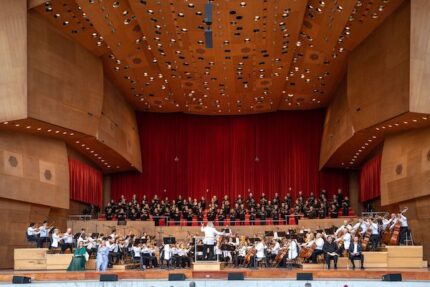
Posted in Performances

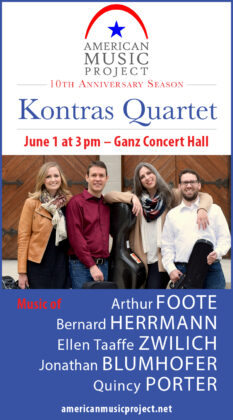

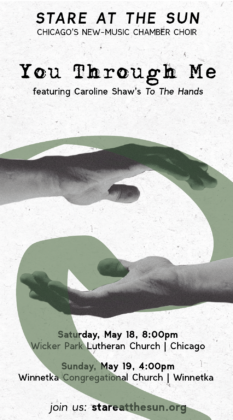
Posted Jun 18, 2023 at 6:26 am by Tim
This is the sort of work I wish could have been heard in the Harris Theater (or another indoor concert hall.) Beautiful and moving as the performance was (I was especially touched by the bass soloist’s parts) and an outstanding interpretation deserves a chance to be appreciated and heard for what it is worth.
To my frustration (as heard Saturday night) was the insistent applause of many audience members between each part. Of course, these attendees were just happy to hear quality music and showing their polite, if unknowing, approval.
One of the things I most value about GPMF is its substantive programming. Such has helped me to develop my own appreciation of “classical” (if that’s the term we wish to apply to this art form) music. Its availability to all at no cost offers an egalitarian education. I’m thankful for opportunities to hear seldom performed works as this, especially.